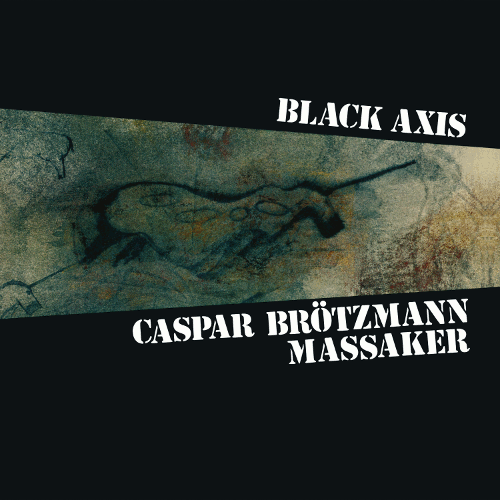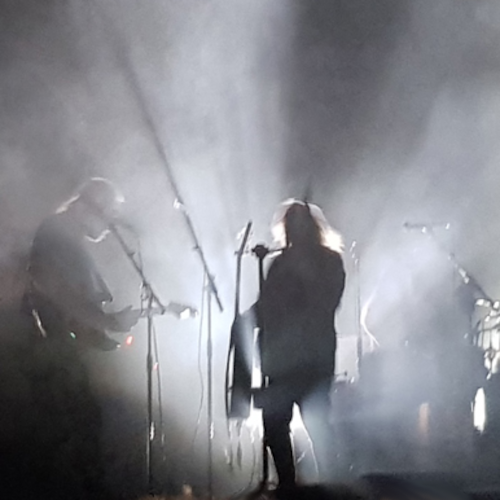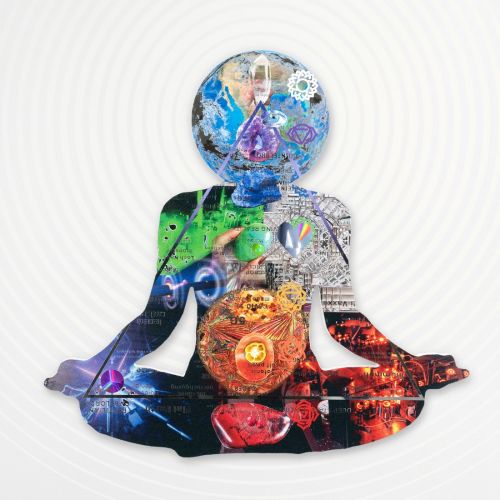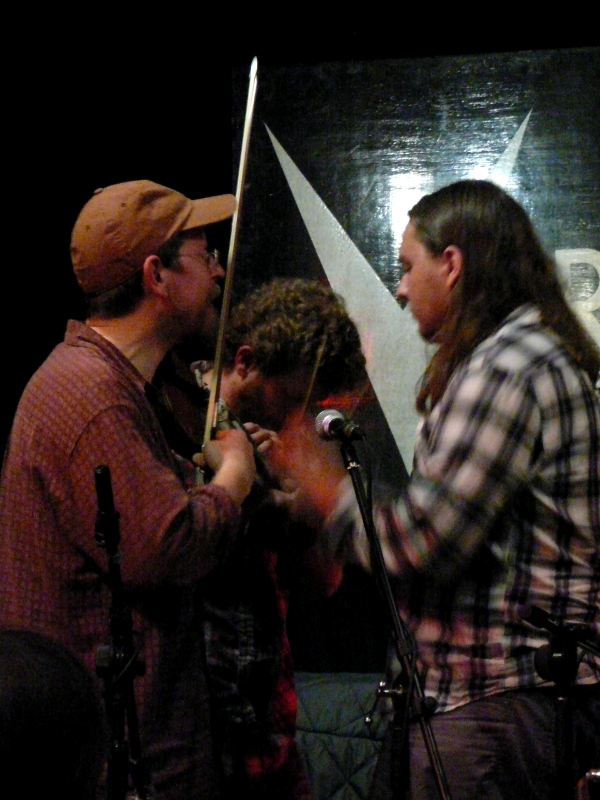Demiurg /
London
3 March 2019
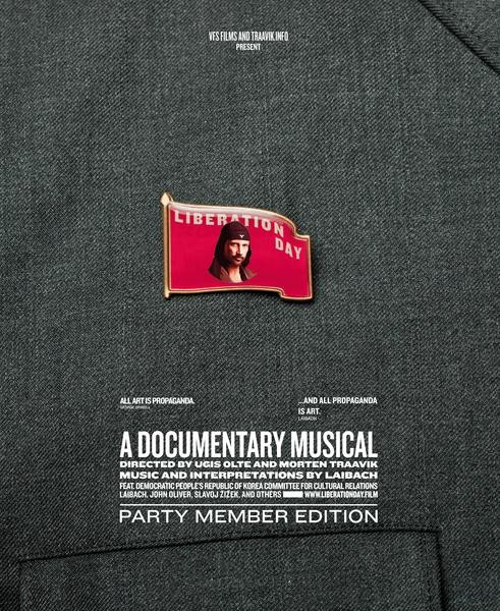 This is a story of two enigmas. One is an inscrutable totalitarian art-rock collective, and the other is the most secretive state on Earth. And this is all about what happened when the two collided to the strains of a much-loved feel-good musical with Nazis in it.
This is a story of two enigmas. One is an inscrutable totalitarian art-rock collective, and the other is the most secretive state on Earth. And this is all about what happened when the two collided to the strains of a much-loved feel-good musical with Nazis in it.
Laibach have been defying musical and artistic conventions and outraging public decency for nearly forty years, and are still as mysterious, terrifying and hilarious as ever. Having exposed the essentially fascist nature of pop music with their Wagnerian reworkings of popular classics, they continue to dance on the edge of political meaning, being mistaken for both Nazis and Communists (occasionally actually BY Nazis and Communists). But Laibach refuse to offer easy answers. No, they’re not about easy answers. They’re about difficult questions.
And the Democratic People’s Republic of Korea is also about difficult questions. Questions like “democratic?” and “does it still count as a republic if the title of Head Of State stays in one family?” Said to be so enclosed and with a population so closely monitored that we can’t even get spies in, the DPRK has become the bogeyman. Bizarre news stories come out of the place, and we have no way of knowing whether they’re actually true or not; because at this point we’ll believe anything about North Korea. Which gives the place an almost mythical status — beyond knowing that we’re glad we don’t live there, not many of us know anything of substance about it at all beyond its history, politics and public pronouncements.
In the spirit of cultural exchange, in 2015 Laibach became the first Western band to perform in the notoriously oppressive state. Artist and film director Morten Traavik had the idea of getting Laibach to play Pyongyang, and somehow he managed to make it happen. In an interview with Kosovo Two Point Zero, he says “it’s easier to get an unguarded moment with a North Korean than with a Laibach member“. Which must have made making a documentary about the two very difficult. But that’s exactly what he did. With Ugis Olte, he filmed the whole thing, and the result is Liberation Day, a fascinating film about this very special cultural occasion.
Just visually it’s fascinating. I remember at the time they went over there, their Facebook page was full of pictures of the band walking around Pyongyang. Everything LOOKED like a Laibach video, but everything would have looked like a Laibach video even if Laibach weren’t in the pictures. It was an odd combination of immersion and disconnect, a Brechtian alienation device done for real. From the highly critical “welcome” speech (nobody knew the guy was going to be taking the piss, apparently) to the traditional “rock band on buses” scenes shot among Pyongyang’s totalitarian architecture, it’s a movie of contradictions about a band of contradictions playing in a country of contradictions.
We get the Pyongyang Gold Stars playing “The Sun Always Shines On TV” on accordions. Traavik has also released an album by them, Take On Us: The Pyongyang Gold Stars Play Great Popular Hits Vol 1, in which they play a lot of A-Ha songs, traditional folk song “Airang “and two other pieces by “common authorship”. It’s a lot of fun, as well as being musically quite extraordinary. For what initially seems a limited concept, it shows that they have a LOT of range. And so the contradictions pile up.Outside the documentary, we have celebrity problematic Marxist Slavoj Žižek making a very good case for Laibach in Pyongyang being the most important cultural artifact of the twenty-first century, as well as various trailers and videos. But we also get an entire concert in Austria and, of course, the Pyongyang show. The latter is interesting not only for the performance, but because we never really see much of the audience. A friend wondered if this was a legal thing, but I pointed out that on the documentary we get plenty of crowd shots — I wonder rather if this is just because North Korean state TV have never filmed a rock concert before, so don’t do things the way we would. I mean, you don’t tend to get shots of the crowd in opera or classical recitals, after all.
The Graz gig is a banger. Start with an opening speech positing a dystopian fascist Austria (not exactly inconceivable, of course, and bringing the US, Austria and DPRK’s love of The Sound Of Music‘s idealised Heimat to do it), call out Jörg Haider by name, then move through a Nietzsche sermon to some stuff from their Also Sprach Zarathustra soundtrack with a full-on string section and THEN shift into The Sound Of Music? Not a dry seat in the house. All bases covered, really.The strings really shift everything into a different gear: “Do-re-mi”‘s extended intro is proper fucking beautiful, giving the whole thing a Current 93 vibe before the song itself even starts. And on it goes, turning the whole thing into an awesome classical recital while also adding a choir of children. Which is a PROPER Jim Steinman move. But of course, even in the topsy-turvy world of Laibach, live performances are best experienced in the flesh. So we toddled along to Shepherd’s Bush Empire in London to see them performing The Sound Of Music in full (accompanied by a screening of Liberation Day).
Last time I was here was to see Current 93 performing The Light Is Leaving Us All, when the air was filled with birdsong prior to the band taking the stage. Tonight, too, the tweeting and chirping is omnipresent, and I start to wonder if maybe that WASN’T part of Current 93’s act at all, and that there’s just an enormous aviary on top of the building. But no. This being Laibach, they don’t restrict themselves to birds, and a variety of animals join the cacophony. Cows are mooing by the time the band take the stage.Compared to Graz, this is a more conventional gig — though where Laibach are concerned, “conventional” is very much a moveable feast. First there is a screening of Liberation Day, and then we get the album played through, although unlike Pyongyang, as as on the recordings and the Graz show, we have Marina Martensson joining Milan Fras and Boris Benko on vocals, making the whole thing slightly more operatic.
“My Favourite Things” in particular is a wonder, and the back projections during “Maria/Korea” (“How Do We Solve A Problem Like Korea?”) aren’t pulling any punches AT ALL. Animated Cold War imagery, nuclear Armageddon… it’s pretty hot stuff. Interestingly, their take on “I Am Sixteen Going On Seventeen” is pretty much the opposite of the Young Gods‘ version of “Hello Hello I’m Back Again” — which made a not-sinister-at-all (at least in light of what we knew then about Mr Glitter as opposed to what we now know) song deeply spooky. Whereas Laibach’s “I Am Sixteen…” IS quite creepy, but it’s actually less creepy than the original, which was, well, really quite creepy already, because it knows how creepy it is and mocks itself for it. This is the many-layered onion that is Laibach’s calculated sincerity. But for all the questions as to what Laibach are or aren’t, they’re defitinely not Stalinists. When they return after the interval to play some of their own music, the absent Mina Špiler is represented in projected form shouting through a megaphone. Which is pretty much exactly what Uncle Joe WOULDN’T do. After a thoroughly bombastic “Sympathy For The Devil”, they play what I assume is the theme song from Iron Sky 2: Electric Boogaloo. No, wait, it’s Iron Sky 2: Iron Harder. No, bugger, that’s not it either — 2Iron2Sky? Hmm. Ah yes, Iron Sky: The Coming Race. Footage from the movie plays, and holy shit I need to see it NOW.And then the biggest surprise of all, as Milan returns to the stage wearing a cowboy hat (over his ACTUAL hat, obviously) and it turns out LAIBACH DOING COUNTRY AND WESTERN IS NOW A THING OMG. Holy shit. It’s awesome. And then the hat itself gets its own round of applause, and the show’s over. But what a show. As always leaving one with more questions than answers, but feeling musically satisfied. Shepherd’s Bush has been officially liberated.
-Words: Justin Farrington-
-Pictures: Dave Pettit-
